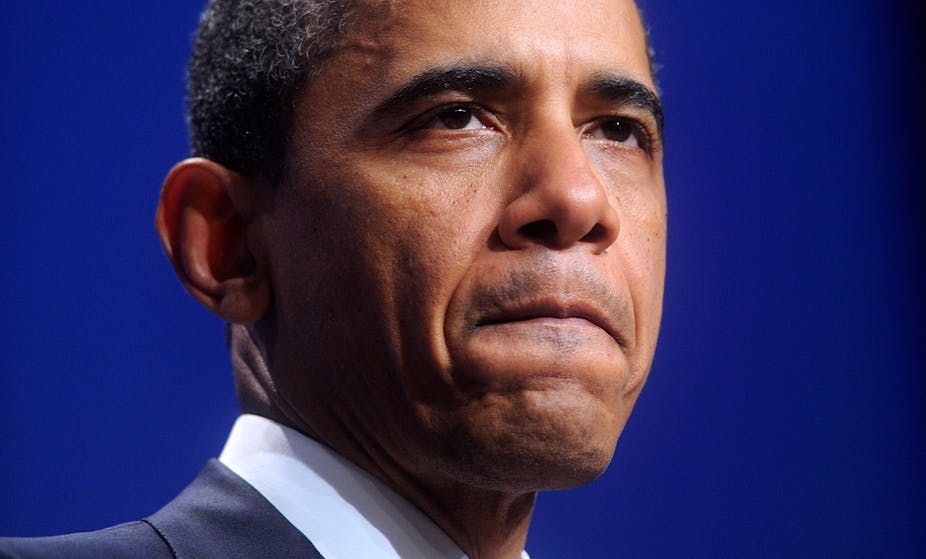As the political stand-off around the US debt crisis looks set to continue into the weekend, US President Barack Obama is being tested whether he has the courage to stand his ground.
Last week the President and Republican Speaker of the House John Boehner had come within hair’s breadth of a deal, which would have raised the debt ceiling sufficiently to keep the country solvent into 2013, raised taxes by US$800 billion and cut spending by $1.2 trillion. This is what Obama, in his televised address on Monday, called a “balanced” approach.
The US last enjoyed a balanced budget in 2001. Two wars, a tax cut, a new expensive Medicare program, and a deep recession – not to mention a political environment that makes tough choices all but impossible – brought the US to where it is now.
The debt ceiling is a self-imposed barrier up to which the federal government can borrow, and it is adjusted regularly to meet the government’s obligations.
As long as the budget is in deficit, the debt ceiling will have to be raised, and is usually done so automatically via approval of the annual budget.
The debt ceiling is used to hold the President to ransom, both for reasons of tax policy and party politics. Boehner and the Republicans in Congress want the President to accept deep spending cuts and forego any tax increases to make up for that increased debt level.
Sixty of the 240 Republicans in the House are Tea Party members who adamantly oppose any tax increases, even those offered in Boehner’s previous proposals. Their determination to vote against any tax increases – even if this means a US default – strengthens Boehner’s hand.
The political wager is on who will take the heat for the Washington stand-off. Republicans are betting the President cannot afford to let the country default, and so will ultimately accept almost any compromise to keep paying the bills.
An alternative to defaulting on debt payments, however, would be a selective default. This would entail prioritising the payments, ensuring that bonds are serviced.
In that case, the loss in reputation would be assessed not just by credit rating agencies: government employees would be furloughed, contractors would be unpaid, and veterans and social security recipients would have their benefits suspended.
A similar outcome served another president rather well in 1995. President Bill Clinton, facing a Congress unwilling to raise the debt ceiling, stood his ground against Newt Gingrich and allowed the government to be shut down, except for essential services. The crisis lasted for more than six weeks.
While the President’s poll ratings plummeted, Gingrich ultimately took most of the heat for the shut-down. If the government were to shut down this time, chances are Boehner and the Republicans would not emerge unscathed.
In the Republican party’s latest offer, Boehner is offering to raise the debt ceiling by $900 billion to meet the obligations until February next year, a deal he is yet to clinch.
Accepting this offer means the government would face the same stand-off again right before the 2012 presidential campaign.
The US will not default on its debt on 2 August.
The consequences for the US, and the collateral damage would be too severe.
But if Obama accepts the convenience of temporary relief offered by Boehner, he is handing control over the fiscal agenda to the Republicans for the remainder of his term, and the US will go through a similar stand-off in the first quarter next year – a worse time for Obama, and the country, to deal with such a disruption.
On Monday, Obama stepped up to the bully pulpit that in the past has given presidents a powerful means of influencing public opinion.
But in today’s media world of “fair and balanced” reporting, Boehner got equal time on the major networks, immediately rebutting the President and reminding voters of the deep rift in Washington.
More than 200 years ago, Edmund Burke told the electors of Bristol, “Parliament is not a congress of ambassadors from different and hostile interests [but] a deliberative assembly of one nation, with one interest, that of the whole.”
It must be hard to lead a country in which voters are constantly exposed to partisan bickering. As the debt clock in Times Square ticks away, all eyes are on whether Obama has the courage to let it run to zero.

